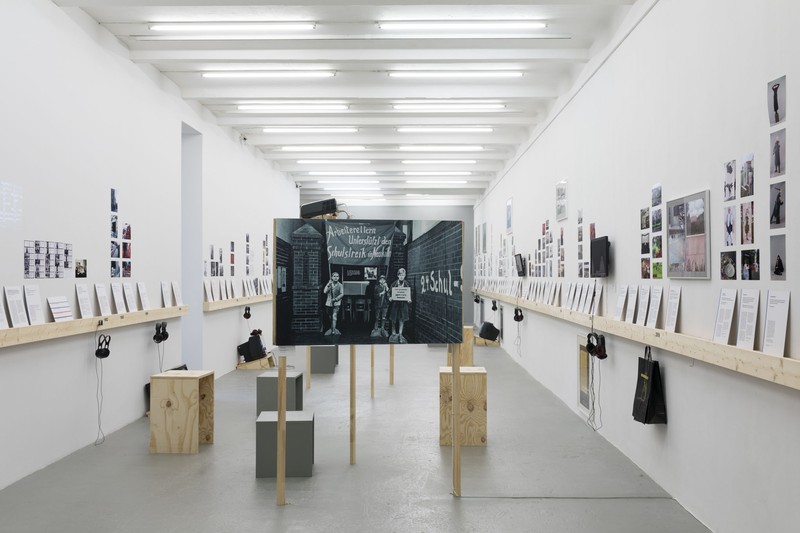Starting with the Artists' Congress in 1971, the exhibition traces the development process of what was once known as the "Model Experiment in Further Education for Artists".
In April 1978, the first students came to the continuing education course, which was housed in a building in Köthener Straße, near the border area at Potsdamer Platz. The aim of the pilot project was, on the one hand, to democratize art, i.e. to open up art and cultural institutions to everyone, to teach artistic forms of expression and action to non-artists and to make artistic skills available for the visualization of the interests of marginalized or disadvantaged groups in their social negotiations.
On the other hand, it was about developing and shaping the field of cultural work and thus about opening up artistic fields of action in society and creating earning opportunities for artists.
The exhibition shows key milestones in this forty-year history of education, the beginnings of which were decisively shaped by the left-wing and socially critical positions of a small group of committed teachers. Among them was Katja Jedermann, a co-designer of the course from 1980 to 2012 and an early member of the nGbK. Her commitment facilitated numerous intersections between the Institute for Art in Context and the nGbK.


The documentary show is commented on and activated by various artistic works and interventions by current and former students of the Institute. The archive work will be continued in a film workshop that is part of the exhibition.
More Infos here: https://archiv.ngbk.de/projekte/40-jahre-kunst-im-kontext/

